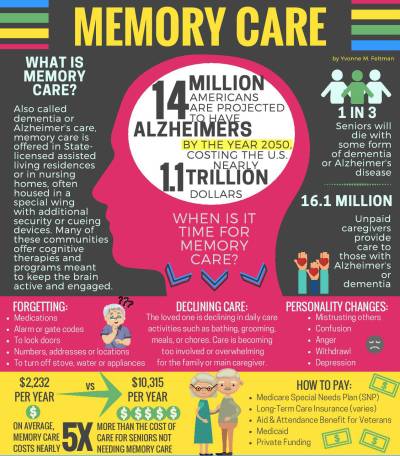How Boutique Memory Care Supports Daily Living for Aging Loved Ones
Exploring the Relevance of Memory Treatment Provider in Small Memory Treatment Residences
Memory care services play a vital role in boosting the lives of people with cognitive impairments. In tiny memory care homes, the focus changes to personalized care customized to every local's unique requirements. These intimate settings promote deeper links and a supportive area. The concern remains: how do these atmospheres particularly contribute to the emotional well-being of both residents and their families? Recognizing this dynamic exposes real value of specialized memory treatment.
Comprehending Memory Care and Its Value
Memory treatment is a crucial part in attending to the unique requirements of people with cognitive disabilities, such as mental deterioration and Alzheimer's disease. This specific form of treatment concentrates on creating a helpful and secure environment tailored to the obstacles faced by these individuals. Memory treatment centers employ skilled team who comprehend the intricacies of cognitive decline, using individualized care that advertises self-respect and routines and respect.activities are developed to boost memory retention and cognitive function while guaranteeing safety and safety and security. Furthermore, memory treatment emphasizes social interaction, which can reduce sensations of seclusion and boost emotional well-being. By fostering an organized setting, people can browse their every day lives with even more self-confidence. Comprehending the value of memory treatment exposes its duty in boosting lifestyle, allowing people to keep as much freedom as feasible while obtaining the assistance they need.

The Advantages of Smaller Memory Care Houses
Smaller memory care homes use an even more intimate setup that can considerably enhance the high quality of look after citizens. With less citizens, personnel can build stronger connections, cultivating trust fund and psychological links. This personalized interest usually results in enhanced communication, making it simpler for caregivers to recognize and fulfill the special requirements of each local. On top of that, smaller sized settings typically lower stressors and interruptions, promoting a calming ambience helpful to memory retention and emotional well-being. The layout of smaller sized homes usually encourages socializing amongst locals, allowing for meaningful communications that can deal with feelings of seclusion. Additionally, these homes can adapt extra quickly to changes in treatment demands, ensuring that citizens receive prompt support. On the whole, the customized focus, decreased stress and anxiety, and enhanced social possibilities found in smaller memory treatment homes create a nurturing environment that supports both cognitive feature and psychological health
Personalized Treatment Program for Person Needs
Customized treatment strategies are necessary in addressing the special needs of individuals in memory treatment. These strategies frequently include customized support approaches that enhance daily living and advertise well-being. Furthermore, customized activity involvement helps locals link with their passions, fostering a sense of function and delight.
Customized Support Techniques
Understanding the special needs of each person is fundamental when developing tailored assistance methods in memory treatment solutions. These methods entail creating customized care plans that cater to the particular requirements, preferences, and capabilities of citizens. By examining cognitive function, emotional well-being, and physical health, caretakers can make reliable treatments that promote comfort and freedom - small memory carehomes Charlotte. This personalized method guarantees that each resident obtains proper support, boosting their lifestyle. Routine evaluations and adjustments to these plans are vital, as they allow caretakers to respond proactively to changing demands. In addition, engaging relative in the preparation procedure fosters a joint environment, reinforcing the assistance network for people with memory obstacles. Ultimately, customized assistance approaches are vital for supplying compassionate and effective memory treatment
Individualized Task Interaction
Developing meaningful engagement via individualized tasks is crucial in memory care solutions. Memory care homes focus on personalized treatment plans that deal with the unique needs and preferences of each homeowner. These plans commonly include activities customized to residents' rate of interests, capacities, and cognitive levels, boosting their feeling of purpose and dignity. By including familiar routines, pastimes, and social interactions, caregivers can promote cognitive feature and emotional health. Individualized activity interaction not just fosters a supportive atmosphere yet additionally encourages locals to preserve their freedom. The energetic participation in these tailored activities can result in enhanced state of mind and lowered anxiety, reinforcing the significance of an alternative technique in memory treatment that identifies each person's trip and distinct experiences.
Producing a Helpful Community Atmosphere
While promoting an encouraging area environment is crucial for those with memory treatment needs, it needs willful style and thoughtful involvement. Creating such an environment includes a mix of physical room and interpersonal links. Tiny memory care homes can benefit greatly from formats that motivate social communication, such as open typical locations and comfy celebration rooms. These layouts advertise a sense of belonging and protection for residents.Moreover, team member play a necessary function in cultivating this environment. Training caregivers to prioritize compassion and energetic listening promotes and enhances relationships trust. Furthermore, entailing family members in care strategies and neighborhood activities can strengthen bonds and develop a network of support.
Enhancing Social Interaction and Activities
Efficient social engagement and Our site tasks are necessary for improving the well-being of homeowners in memory treatment homes. These communications not only foster a sense of belonging yet additionally boost cognitive features, which can favorably affect memory retention. Little memory treatment homes typically offer personalized programs tailored to the distinct interests and capacities of each local, permitting for even more effective and significant engagement.Activities such as art treatment, songs sessions, and group games urge citizens to get in touch with one another, promoting relationships and decreasing sensations of seclusion. Additionally, including outside tasks, such as gardening or nature strolls, can enhance mood and general health.These improving experiences help citizens keep a sense of purpose and happiness in their lives. By developing an environment that prioritizes social communication, tiny memory care homes considerably add to the psychological and emotional wellness of their homeowners, guaranteeing they feel valued and supported in their journey.
Supporting Households Via the Trip
As family members navigate the difficulties of taking care of an enjoyed one with memory problems, the assistance provided by small memory care homes becomes necessary. small memory carehomes Charlotte. These homes supply not just customized care for residents but additionally beneficial sources for families. By fostering a collaborative environment, small memory care homes encourage open interaction, enabling families to express issues and share experiences.Support groups and educational workshops are frequently offered, gearing up family members with expertise and approaches to take care of the intricacies of memory loss. Such initiatives help decrease feelings of isolation, as families get in touch with others encountering comparable situations.Moreover, little memory care homes frequently supply individualized updates on citizens' health, alleviating households' concerns read this article and helping them really feel associated with their loved one's daily life. This all natural technique to support not only boosts the high quality of take care of locals yet also encourages family members throughout their emotional journey
The Effect of Specialized Personnel Educating on Care Quality
In tiny memory treatment homes, the quality of treatment is greatly influenced by the training and competence of the staff. Specialized training equips caretakers with necessary skills to recognize and attend to the unique demands of locals with memory problems. Understanding of dementia-related behaviors, reliable communication strategies, and person-centered care approaches enhances the capacity of staff to develop an encouraging environment.Moreover, trained team are better prepared to manage tough circumstances, decreasing the chance of problems and making sure a calmer ambience. This training promotes a deeper emotional link between homeowners and caregivers, promoting depend on and enhancing total well-being. Additionally, specialized training can bring about higher task contentment amongst caregivers, minimizing turnover prices and giving connection of treatment for residents. Ultimately, the investment in personnel education substantially boosts the criterion of treatment, which is vital for enhancing the quality of life for individuals in small memory care homes.

Often Asked Inquiries
Just how Do I Pick the Right Memory Treatment Home for My Loved One?
Choosing the right memory care home involves assessing personal requirements, checking out centers, examining personnel experience, recognizing treatment alternatives, considering location, comparing costs, and looking for referrals. Each aspect plays a critical role in making sure excellent care.
What Is the Cost Difference Between Small and Large Memory Care Facilities?
The cost difference in between tiny and huge memory treatment centers can differ significantly. Typically, small homes may offer even more tailored treatment at a greater per-person rate, while larger facilities frequently provide more services at a reduced total expense.
Exactly How Frequently Can Families Go To Their Liked Ones in Memory Treatment Houses?
Families can generally see their liked ones in memory treatment homes as commonly as wanted, with lots of facilities urging routine visits to keep connections and support emotional well-being, though specific policies may vary by home.
What Particular Tasks Are Used in Small Memory Treatment Homes?
Tiny memory care homes typically use tasks like crafts and arts, songs treatment, horticulture, workout classes, and cognitive games. These tasks are developed to engage residents, boost their minds, and promote social interaction amongst them.
Are There Any Age Limitations for Locals in Memory Care Facilities?
Age limitations for homeowners in memory care facilities usually differ by area and specific facility policies. Generally, these homes deal with older adults, commonly calling for homeowners to be at the very least 55 or 60 years of ages. In little memory care homes, the focus changes to individualized care tailored to each citizen's unique requirements. Memory treatment centers employ qualified personnel that understand the complexities of cognitive my company decrease, supplying personalized care that promotes self-respect and respect.Activities and regimens are developed to promote memory retention and cognitive feature while ensuring safety and safety and security. Smaller memory treatment homes supply an even more intimate setup that can noticeably boost the high quality of care for locals. Memory treatment homes focus on customized care plans that provide to the one-of-a-kind demands and preferences of each local. As families browse the difficulties of caring for a loved one with memory impairment, the assistance given by tiny memory care homes comes to be crucial.